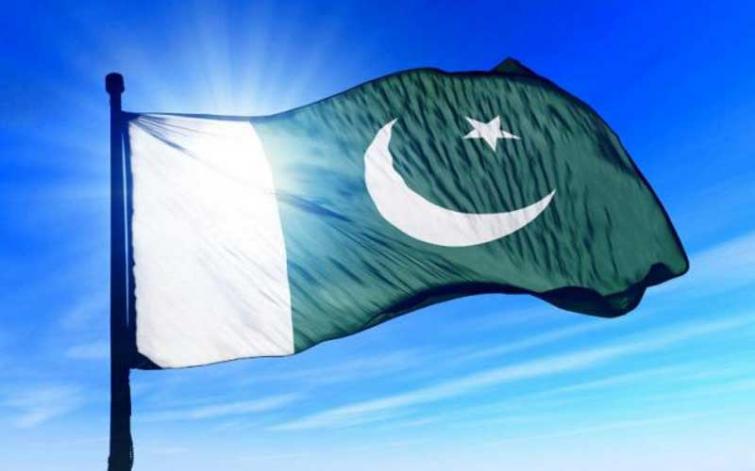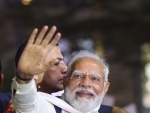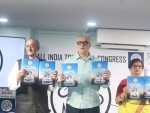
Sindh: Relative Calm
A Policeman, identified as Rehman Bangash, was killed by unidentified assailants outside his residence in the Pehlwan Goth area of Gulistan-e-Johar in Gulshan Town, Karachi, the provincial capital of Sindh, on February 5, 2020.
Two Policemen were killed and another four persons were injured in a targeted shootout in Saddar Town, Karachi, on January 7, 2020. City Police Officer (CPO) Mohammad Ahsan Younas stated, on January 8, “The shooter who was killed during yesterday’s encounter with the police was affiliated with the Jamaat-ul-Ahrar group and some evidence available with the police also suggests that he was trained in Afghanistan.”
According to partial data compiled by the South Asia Terrorism Portal (SATP), Sindh registered a record low of 25 fatalities, including 15 civilians, five Security Force (SF) personnel and five militants, through 2019. There were 48 such fatalities, including 29 militants, 12 civilians and seven SF personnel, in 2018. Overall-terrorism related fatalities in 2019 thus registered a 48 per cent decline in comparison to 2018. There were a total of 248 fatalities in 2017. Overall fatalities have been declining in Sindh since 2014, when fatalities fell to 1,147 from 1,656 in 2013. 2013 recorded the maximum number of fatalities in a year since March 6, 2000, when SATP started compiling data on major conflicts in Pakistan.
Other parameters of violence also witnessed considerable diminution. While Sindh accounted for eight major incidents (each involving three or more fatalities) of violence, resulting in a total of 33 deaths in 2018, 2019 recorded two such incidents, accounting for six fatalities. One of the major attacks of the year was on February 13, 2019, when unidentified assailants killed three Pashtuns hailing from Bajaur District (Khyber Pakhtunkhwa) while they were commuting in a three-wheeler near the Naudero Bypass in the Larkana District of Sindh. There was a maximum of 153 major incidents resulting in 375 deaths in 2014.
There was also a considerable decrease in the number of explosions in 2019. In comparison to six blasts resulting in 17 fatalities and 14 injuries in 2018, year 2019 recorded only one explosion resulting in one fatality and two persons injured. There a maximum of 116 blasts resulting in 194 fatalities in 2013.
Sectarian violence also remained under control, with just one incident in 2019 resulting in one fatality, the same numbers as in 2018. There were three such incidents in 2017, with 93 fatalities. Sindh had recorded a peak of 92 sectarian attacks in 2013, resulting in 122 deaths and 155 persons wounded.
Except for one incident of civilian killing, resulting in three fatalities, in Larkana District, all other incidents of killings (17) resulting in 22 fatalities in Sindh through 2019 were reported from Karachi District. Sindh has a total of 29 Districts. Karachi recorded 22 incidents of killing, resulting in 47 fatalities, in 2018. When violence was at its peak, Karachi had recorded 1,168 incidents of killing resulting in 1,611 fatalities in in 2013.
The then Karachi Police chief, Additional Inspector General (AIG) Ghulam Nabi Memon, told Dawn on December 31, 2019, that there was a 33.33 per cent reduction in the cases of target killing. In 2018, the numbers of target killing cases was 18, while 12 cases were reported in 2019. Police also succeeded in arresting 29 kidnappers who were involved in 32 cases of abduction in the city in 2019. Talking about terrorism incidents, the AIG Memon disclosed that there was no bomb blast in the city in 2019, while there were three such cases in 2018 and 51 cases in 2013.
Though there has been significant reduction in the number of terrorism incidents in Karachi in 2019, the city did witness some shocking incidents. On March 22, 2019, unidentified assailants on motorcycle opened fire, targeting renowned religious scholar Mufti Taqi Usmani, in the NIPA Chowrangi area of Karachi, killing two of his guards. Mufti Usmani later told a private TV channel that he was traveling with his wife and two grandsons, who remained unhurt. The then chief of Karachi Police, Amir Ahmed Shaikh, had stated that the motive appeared to be bigger than sectarianism or terrorism as Mufti Usmani was a ‘towering personality’ who commanded respect across the country and the attackers wanted to create chaos in Karachi and the country as well.
Karachi’s relative calm is due to the presence of and periodic operations by the Pakistan Rangers (Sindh). The Pakistan Rangers were called in on September 4, 2013, when violence in the city was surging, with a total of 1,547 fatalities recorded in 2012. The fatalities increased further to 1,656 in 2013. Since then, the Ranger’s operations in Karachi have been extended on a 90-day basis, requiring the Provincial Government’s requisition to the Federal Ministry of Interior, for approval of each extension. The latest extension was given on October 4, 2019, which ended on January 1, 2020. There has been no report till the time of writing regarding further extension.
Earlier, on December 31, 2018, the Pakistan Rangers released a performance report of its ‘Karachi Operations’ between the period September 4, 2013, and December 31, 2018. The report claimed that 2013 recorded 57 incidents of terrorism, which increased to 66 in 2014 and further to 199 in 2015. The number of incidents decreased to 16 in 2016. No such incident was reported in 2017. Two incidents were recorded in 2018. Further, incidents of target killings saw a steep decline: 965 in 2013; 602 in 2014; 199 in 2015; 89 in 2016; 45 in 2017; and nine in 2018. Similarly, recorded cases of extortion also declined: 1,524 in 2013; 899 in 2014; 303 in 2015; 101 in 2016; 65 in 2017; and 51 in 2018. Incidents of kidnapping also decreased from 174 in 2013 to 115 in 2014, 37 in 2015, 26 in 2016, 18 in 2017 and 13 in 2018.
Though terrorism related incidents have declined dramatically, the Counter Terrorism Department (CTD) suspected that a splinter group of Al Qaeda in the Indian Subcontinent (AQIS) had entered Karachi to carry out terrorist attacks. “We have received reports that six ‘disgruntled’ militants of the AQIS recently arrived in Karachi from Afghanistan and they are trying to activate their sleeper cell,” CTD chief Raja Umar Khattab stated on October 13, 2019. Khattab added that this was a splinter group of AQIS that comprised members of different communities who belonged to Karachi and had gone to Afghanistan. They had reportedly developed differences with their leadership, partly because their ‘services’ had not been utilized for a considerable period of time, prompting them to return to Karachi.
Moreover, The Eurasian Times stated, on January 21, 2020, that an Iranian gang has been found involved in street crime activities in Karachi. According to police reports, between January 2015 and October 2019, a total of 92,889 persons were robbed at gunpoint in streets, roads and parking lots. Most of the victims didn’t resist, but 220 of those who resisted were killed by armed robbers. It is noteworthy, that street crime helps terrorism in Karachi to thrive.
Though, overall terrorism related incidents touched an all-time low in 2019 due to the Rangers’ operational deployment, the persistent street crimes and presence of latent terrorist elements remains a matter of concern.
Support Our Journalism
We cannot do without you.. your contribution supports unbiased journalism
IBNS is not driven by any ism- not wokeism, not racism, not skewed secularism, not hyper right-wing or left liberal ideals, nor by any hardline religious beliefs or hyper nationalism. We want to serve you good old objective news, as they are. We do not judge or preach. We let people decide for themselves. We only try to present factual and well-sourced news.







